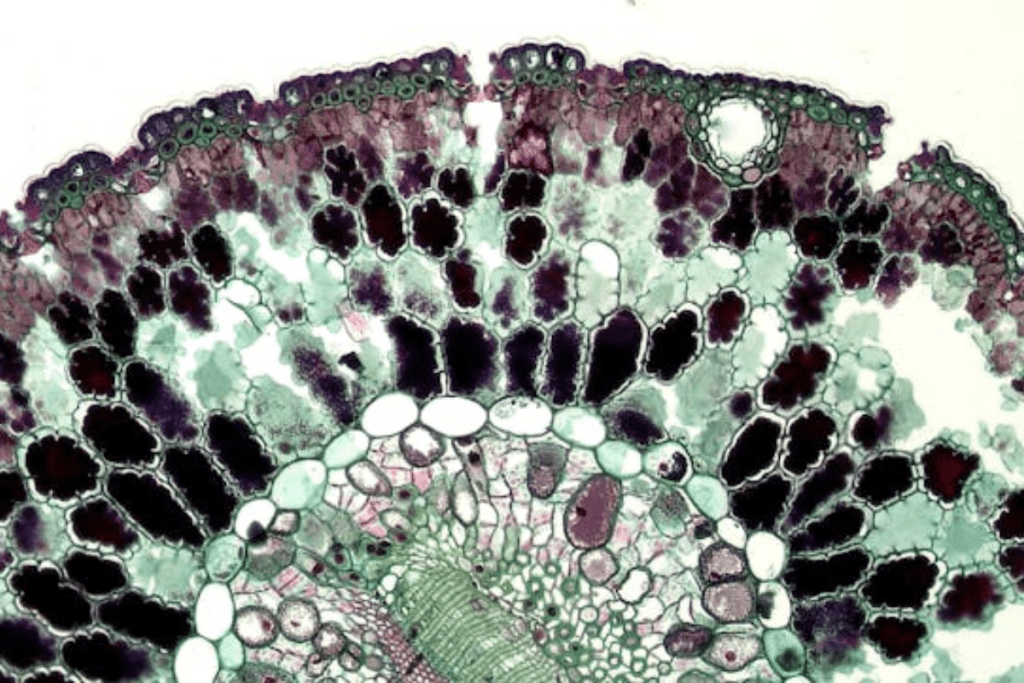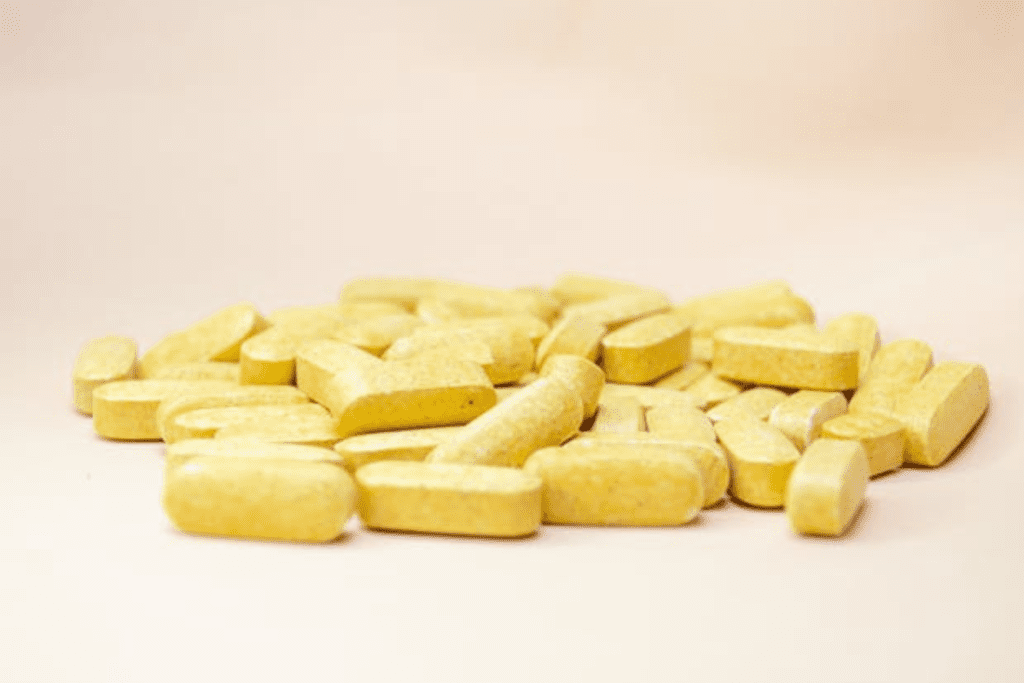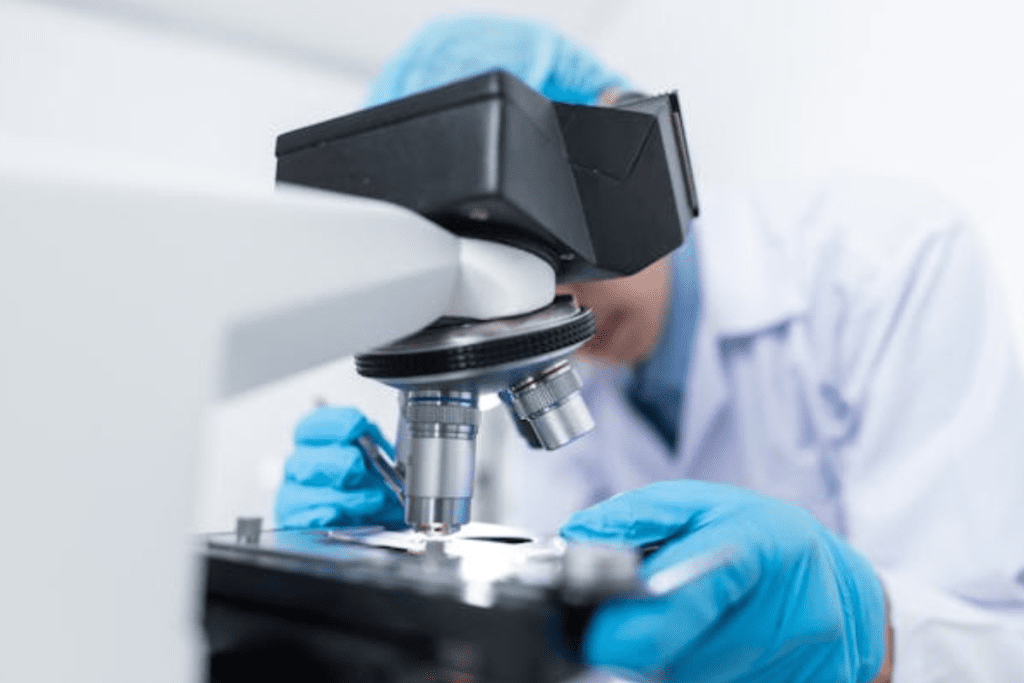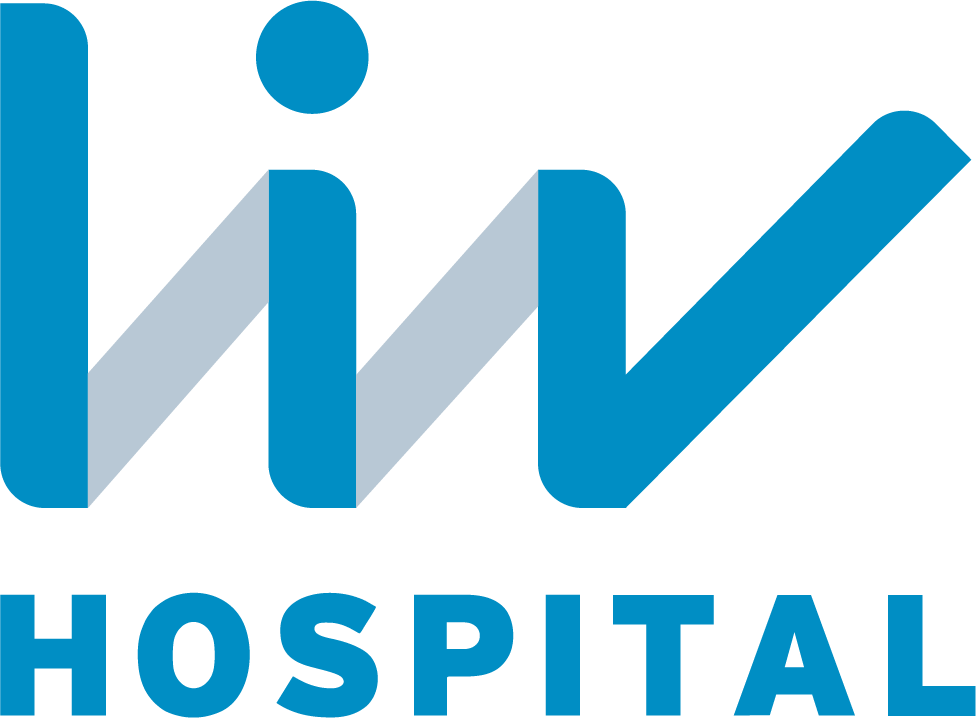
Stem cells are the body’s raw materials, capable of transforming into various specialized cell types. Recent studies show that some vitamins and nutrients act as supplements that increase stem cell production. This could lead to big breakthroughs in regenerative medicine.
Stem cells are key to fixing or replacing damaged tissues. They are vital for our health. With more interest in stem cell supplements, it’s important to know which vitamins and nutrients help their production.
Key Takeaways
- Certain vitamins can activate stem cells and enhance their production.
- Stem cell supplements may support regenerative health.
- The best vitamins for cell regeneration include those that support overall cellular health.
- Nutrients play a key role in keeping stem cells healthy.
- Understanding the role of vitamins in stem cell production can lead to better health outcomes.
Understanding Stem Cells and Their Importance
Stem cells are key to how our bodies fix and grow themselves. They can turn into different types of cells. This helps in fixing tissues and growing new ones.
What Are Stem Cells and How Do They Function?
Stem cells can make copies of themselves and turn into specific cells. This is why they’re important for keeping tissues healthy and fixing them when needed. There are many kinds of stem cells, each with its own job.
The way stem cells change into different cells is controlled by genes and the environment. Stem cell supplements and stem cell pills try to help this process. But how well they work depends on the supplement and the person using it.
The Role of Stem Cells in Health and Healing
Stem cells are vital for fixing and growing tissues. They help in healing wounds, making bones, and keeping tissues healthy. Their ability to change into different cells is key to fixing injuries and diseases.
Cellular regeneration supplements are marketed to help stem cells. But it’s important to look at the science behind these claims. Studies are ongoing to see how supplements affect stem cells, with some showing promise for health benefits.
In summary, stem cells are essential for our body’s healing and upkeep. Knowing how they work and their role in health can help us understand the benefits of stem cell supplements and similar products.
The Science Behind Stem Cell Activation
It’s important to understand the science of stem cell activation. This process involves many steps in the body. To see how supplements and natural enhancers work, we need to know the science first.
Natural Stem Cell Production in the Body
The body can make stem cells on its own. Stem cells can turn into many types of cells, like muscle or nerve cells. This process is controlled by genes, hormones, and the environment.
In a healthy person, stem cells are made in places like the bone marrow. They stay there until the body needs them. When the body is damaged, stem cells grow and change into the needed cells to fix it. This is key for keeping tissues healthy and the body working well.
Factors That Influence Stem Cell Activity
Many things can affect how stem cells work. Age, lifestyle, and what we eat are important. As we get older, stem cells don’t work as well. Our lifestyle, like diet and exercise, also matters.
What we eat is very important for stem cells. Some vitamins help stem cells grow and change. Key things that affect stem cells include:
- Nutritional deficiencies: Not having the right nutrients can hurt stem cells.
- Age: Stem cells don’t work as well as they do when we are younger.
- Lifestyle factors: Our diet, exercise, and stress levels can affect stem cells.
- Environmental toxins: Toxins can harm stem cell function.
Knowing these factors helps us find ways to keep stem cells healthy. This includes using stem cell activation supplements and natural stem cell enhancers. By taking care of ourselves and our lifestyle, we can help our stem cells work better and stay healthy.
Vitamin D: The Sunshine Vitamin for Stem Cell Health
Vitamin D is key to stem cell health. It comes from food and sunlight. This vitamin helps stem cells work properly, which is important for health and healing.
How Vitamin D Affects Stem Cell Proliferation
Vitamin D affects how stem cells grow and change. Studies show Vitamin D receptors in stem cells. This means Vitamin D directly affects their work.
The activation of Vitamin D receptors helps control genes. This supports the body’s repair processes.
Stem cell proliferation is complex. Vitamin D, in its active form, calcitriol, helps. It might boost the body’s ability to heal tissues.
Recommended Dosage and Sources of Vitamin D
Getting enough Vitamin D is important for stem cell health. Adults need 600 to 800 IU daily. But, some think more might be better, depending on the person.
You can get Vitamin D from food like fatty fish, fortified dairy, and mushrooms. Sunlight is also a great source. Supplements are available for those who can’t get enough from these sources.
- Fatty fish like salmon and mackerel
- Fortified dairy products
- Mushrooms exposed to UV light
- Sunlight exposure
- Vitamin D supplements
Having enough Vitamin D is good for bones and stem cells. It’s important for overall health.
Vitamin C and Its Impact on Stem Cell Function

Vitamin C is known for its antioxidant properties. It plays a key role in supporting stem cell health. It helps in the enhancement of cellular regeneration and protects stem cells from oxidative stress.
Research on Vitamin C and Stem Cell Activation
Studies have shown that Vitamin C can influence stem cell activation. It promotes the expression of genes involved in cellular regeneration. A study in the journal Nature found that Vitamin C is essential for turning somatic cells into induced pluripotent stem cells. This shows its role in stem cell rejuvenation.
“Vitamin C acts as a cofactor for various enzymes and plays a critical role in the epigenetic regulation of stem cells,” notes a recent research article.
The antioxidant properties of Vitamin C help keep stem cells intact. It reduces oxidative damage. This is vital for the long-term health and function of stem cells.
Best Ways to Incorporate Vitamin C into Your Diet
To support stem cell health, it’s important to keep Vitamin C levels up. You can get Vitamin C from foods like citrus fruits, strawberries, and leafy green vegetables. Adding these to your daily meals can increase your Vitamin C intake.
- Citrus fruits like oranges and lemons
- Berries, such as strawberries and kiwis
- Leafy greens like spinach and kale
For those with low Vitamin C diets or higher needs, supplements can be an option. But always talk to a healthcare professional before starting any supplements.
B Vitamins: Essential Cofactors for Stem Cell Metabolism

Stem cell metabolism relies on B vitamins as key helpers. These vitamins are vital for energy, nerve health, and heart function. They also play a big role in stem cell function, which is important in regenerative medicine.
The Role of B Vitamins in Cellular Regeneration
B vitamins are important for cell processes like DNA making and fixing. Vitamin B12 is key for DNA and nerve health. Folate (Vitamin B9) helps with cell growth and division.
Cell regeneration needs stem cells to grow and change. B vitamins help by giving cells what they need for DNA and energy. This makes B vitamins very important for stem cells.
Key B Vitamins for Stem Cell Support
Some B vitamins are more important for stem cells than others. These include:
- Vitamin B6: Helps with many metabolic reactions.
- Vitamin B9 (Folate): Important for DNA and repair.
- Vitamin B12: Needed for red blood cells and nerves.
You can get these B vitamins from food or supplements. Foods like lean meats, fish, eggs, dairy, and fortified cereals are good sources.
Vitamin E and Its Antioxidant Effects on Stem Cells
Vitamin E helps protect stem cells from damage caused by free radicals. It’s a fat-soluble vitamin that keeps cells, including stem cells, healthy.
Protecting Stem Cells from Oxidative Stress
Oxidative stress happens when free radicals overwhelm our body’s defenses. These free radicals can harm DNA, proteins, and lipids in cells. Vitamin E fights these free radicals, keeping stem cells safe.
Studies show Vitamin E boosts stem cell health. It helps stem cells grow and change into different types of cells. This is key to fixing and growing tissues.
“Vitamin E’s antioxidant properties make it an essential nutrient for maintaining healthy stem cell function, which is vital for overall health and well-being.”
Natural Sources and Supplement Options
You can get Vitamin E from food and supplements. Nuts, seeds, vegetable oils, and leafy greens are good sources.
- Nuts and seeds (almonds, sunflower seeds)
- Vegetable oils (wheat germ oil, sunflower oil)
- Leafy green vegetables (spinach, broccoli)
If you don’t get enough Vitamin E from food, supplements can help. But always talk to a doctor before taking supplements to find the right amount.
Key Considerations for Vitamin E Supplementation:
- Consult with a healthcare professional to determine the right dosage.
- Choose a high-quality supplement from a reputable brand.
- Be aware of possible interactions with other medicines.
In summary, Vitamin E is important for protecting stem cells from damage. Eating foods rich in Vitamin E or taking supplements can help keep your stem cells healthy. Always get advice from a healthcare professional before starting any supplements.
Vitamin A and Stem Cell Differentiation
Stem cell differentiation is a complex process. Vitamin A plays a key role in it, showing its importance in cell growth. Vitamin A, or retinol, is a fat-soluble vitamin. It helps with vision, immune function, and cell communication.
The Relationship Between Vitamin A and Stem Cell Development
Vitamin A affects how stem cells turn into specific cell types. This is vital for growth, repair, and keeping the body balanced. Studies show Vitamin A and its forms, retinoids, control gene expression. This impacts stem cell development.
Vitamin A’s role in stem cell development is significant in several ways:
- Regulation of Gene Expression: Vitamin A controls genes important for stem cell development and differentiation.
- Cellular Signaling: Retinoids, from Vitamin A, help guide stem cells to specific paths.
- Tissue Development: Vitamin A is key for tissue growth and upkeep, like skin and eyes.
Cautions and Considerations for Vitamin A Supplementation
While Vitamin A is vital, taking too much can be harmful. Too much Vitamin A can cause headaches, dizziness, and serious health problems.
When thinking about Vitamin A supplements, keep these points in mind:
- Recommended Dietary Allowance (RDA): Know the RDA for Vitamin A, which changes based on age, sex, and health status.
- Source of Vitamin A: Dietary sources are usually safe, but supplements can be toxic if not watched closely.
- Consultation with Healthcare Professionals: Always talk to a doctor before starting supplements to find the right fit for your health.
Supplements That Increase Stem Cell Production
Recent studies show that certain supplements can boost stem cell production. These supplements help activate stem cells. This is a key area of research.
Overview of Effective Stem Cell-Enhancing Supplements
Many supplements can help with stem cell health. These include vitamins, minerals, and herbal extracts. Vitamin D is important for stem cell growth and change.
Curcumin and resveratrol protect stem cells from damage. They have antioxidant properties. Amino acids and omega-3 fatty acids also support stem cell health.
Research-Backed Supplements for Stem Cell Activation
Studies have found supplements that activate stem cells. For example, Cycloastragenol from Astragalus membranaceus boosts stem cell activity. It helps with cell repair.
“The activation of stem cells by specific supplements offers a promising avenue for tissue repair and regeneration.” – Stem Cell Researcher
Ginkgo biloba and quercetin also improve stem cell function. Always talk to a healthcare professional before trying new supplements.
- Vitamin D: Supports stem cell proliferation and differentiation
- Curcumin: Protects stem cells from oxidative stress
- Resveratrol: Enhances stem cell activity through antioxidant effects
- Ginkgo biloba: Promotes stem cell function and overall cellular health
Do Stem Cell Supplements Really Work?
Stem cell supplements are becoming more popular. It’s important to look at the evidence behind their claims. The market is full of products that promise to boost stem cell production. But do they really work?
Evaluating the Scientific Evidence
Many studies have looked into how supplements affect stem cells. For example, research on Vitamin D shows it helps control stem cell growth. A study in the Journal of Biological Chemistry found that Vitamin D boosts stem cells’ ability to become bone cells.
But not all supplements have been well-studied. Stem cell supplement reviews show mixed results. Some people say they work, while others don’t see any benefits.
Understanding Limitations and Realistic Expectations
Stem cell supplements are not a quick fix. They might help with stem cell health, but they can’t replace a healthy lifestyle or medical care. Realistic expectations are important. These supplements might improve overall health, but they won’t stop aging or cure diseases by themselves.
When thinking about stem cell supplements, look for ones with scientific backing. Talk to a healthcare professional. They can help figure out if these supplements are good for you.
In summary, some stem cell supplements might be helpful, but their effectiveness varies a lot. By looking at the science and being realistic, people can decide if these supplements are right for them.
Herbal Supplements and Their Effects on Stem Cells
Herbal supplements have been used for ages in traditional medicine. They might help boost stem cell activity. This could be a new way to support stem cell health and improve the body’s healing powers.
Traditional Herbs Known to Support Stem Cell Function
Some traditional herbs might help stem cells work better. Ashwagandha, used in Ayurvedic medicine, could be good for stem cells. Ginkgo biloba, known for its antioxidants, might also help stem cells thrive. Turmeric and Ginseng could support overall cell health, which might help stem cells too.
These herbs have been used for centuries. Now, scientists are learning how they might help stem cells.
Modern Research on Herbal Stem Cell Activators
New studies are looking into how herbal supplements affect stem cells. Astragalus, used in traditional Chinese medicine, might help stem cells move around better and improve heart health. Cycloastragenol, made from Astragalus, has been shown to activate stem cells and help cells grow back in early studies.
Scientists are excited to learn more about herbal supplements and stem cells. They’re studying how these herbs work and their possible uses in medicine.
- Astragalus: May enhance stem cell mobilization and improve cardiovascular health.
- Cycloastragenol: Activates stem cells and promotes cellular regeneration.
- Ashwagandha: Believed to support stem cell health.
- Ginkgo biloba: May contribute to a favorable environment for stem cell activity.
As research goes on, we’ll learn more about using herbal supplements for stem cell health. This could help the body heal itself better.
Dietary Approaches to Enhance Stem Cell Activity
Nutrition is key to keeping stem cells healthy. Certain foods and diets can boost stem cell activity. Eating foods rich in essential nutrients helps the body make more stem cells.
Foods That Naturally Boost Stem Cell Production
Some foods are good for stem cell health. These include:
- Berries: Berries like blueberries and strawberries are full of antioxidants. They protect stem cells from damage.
- Leafy Greens: Spinach and kale are rich in vitamins and minerals. They help keep cells healthy.
- Nuts and Seeds: Almonds, walnuts, and chia seeds have healthy fats and antioxidants. They help stem cells work better.
- Fatty Fish: Salmon is full of omega-3 fatty acids. These support cell growth and repair.
Dietary Patterns That Support Cellular Regeneration
Some diets are better for stem cell health than others. These include:
- Caloric Restriction: Eating fewer calories can help stem cells. It reduces stress and improves cell function.
- High Antioxidant Intake: Eating foods high in antioxidants protects stem cells. It keeps them from damage by free radicals.
- Balanced Macronutrient Intake: Eating the right mix of proteins, fats, and carbs is good for cells. It supports overall health.
By eating the right foods and following these diets, you can help your stem cells. This can improve your body’s repair processes.
Lifestyle Factors That Influence Stem Cell Health
Lifestyle choices like exercise, sleep, and stress levels affect stem cell health. These choices can either help or hurt the body’s ability to repair and grow tissues.
Exercise and Its Impact on Stem Cell Mobilization
Regular exercise boosts stem cell health. It triggers the release of growth factors that help stem cells move and change. This leads to better tissue repair and growth.
Key benefits of exercise on stem cell health include:
- Increased circulation, which helps deliver oxygen and nutrients to stem cells
- Enhanced release of growth factors that support stem cell mobilization
- Improved muscle function and overall physical performance
Studies show that different exercises affect stem cells differently. Aerobic exercise boosts stem cell numbers, while resistance training helps stem cells turn into muscle fibers.
Sleep, Stress, and Their Effects on Stem Cell Function
Good sleep and stress control are key for healthy stem cells. Sleep helps the body fix and grow tissues, with stem cells playing a big role.
Chronic stress, on the other hand, can harm stem cell function. High stress hormones like cortisol weaken the immune system and mess with repair processes.
Strategies for managing stress and promoting stem cell health include:
- Practicing relaxation techniques, such as meditation or deep breathing
- Engaging in regular exercise, such as yoga or tai chi
- Getting adequate sleep, aiming for 7-9 hours per night
By adding these lifestyle habits to daily life, people can support their stem cell health and overall well-being.
Emerging Research and Future Directions
Research in stem cell biology is growing, revealing new insights into stem cell activation. This research is key to understanding how supplements and lifestyle choices affect stem cell production and function.
Cutting-Edge Discoveries in Stem Cell Activation
Recent studies have found important regulators of stem cell activity. For example, microRNAs are vital in controlling stem cell growth and development. This knowledge is helping scientists create new treatments to boost stem cell function.
Research also explores how the environment affects stem cells. It shows that toxins can harm stem cells, but a healthy diet and exercise can help them thrive.
Promising Areas of Development in Stem Cell Supplementation
The field of stem cell supplements is expanding quickly. Scientists are working on targeted supplements to support specific stem cell functions, like growth or specialization.
Another exciting area is using combinatorial approaches. This means combining different supplements or treatments to improve stem cell activity. For instance, vitamin D and exercise together can enhance stem cell movement.
Looking ahead, stem cell research will likely lead to more advanced ways to support stem cell health. These breakthroughs could greatly improve our ability to regenerate cells and enhance overall health.
Conclusion: Creating a Comprehensive Approach to Stem Cell Support
A good plan for stem cell support includes diet, lifestyle, and supplements. These work together to keep stem cells healthy. Eating foods rich in vitamins D, C, B, E, and A helps a lot.
Also, eating whole foods, exercising, and sleeping well are key. They help keep stem cells in top shape. A holistic health approach supports stem cell growth and repair.
Knowing how diet, lifestyle, and supplements interact helps a lot. It lets people actively support their stem cells. This approach can boost health and lower disease risks.
FAQ
What are stem cells, and how do they work?
Stem cells can turn into different types of cells. They help fix and keep the body healthy. You can find them in many parts of the body, replacing old or damaged cells.
How can I naturally boost my stem cell production?
Boosting stem cells naturally involves diet, lifestyle, and supplements. Eating foods full of antioxidants and vitamins helps. Exercise, sleep, and managing stress also support stem cell health.
What vitamins are essential for stem cell health?
Vitamins D, C, B, E, and A are key for stem cells. They help stem cells grow, change, and fight stress. Getting enough of these vitamins is important for stem cell health.
Do stem cell supplements really work?
The success of stem cell supplements varies. Some may help stem cells, but more research is needed. Always check the ingredients and research before trying a supplement.
What are some herbal supplements that support stem cell function?
Herbs like turmeric, ginger, and ginseng might help stem cells. Research is ongoing to confirm their benefits for stem cell activation.
Can lifestyle factors like exercise and sleep impact stem cell health?
Yes, exercise, sleep, and managing stress can help stem cells. A healthy lifestyle boosts stem cell function and overall health.
Are there any foods that can naturally boost stem cell production?
Yes, foods rich in antioxidants and omega-3s support stem cells. Berries, leafy greens, fatty fish, and whole grains are good choices. Adding these to your diet can help stem cells work better.
What is the role of Vitamin D in stem cell health?
Vitamin D is vital for stem cells. It helps them grow and change. Getting enough Vitamin D supports stem cell function.
How does Vitamin C impact stem cell function?
Vitamin C is important for stem cells. It helps with collagen, iron, and antioxidants. Enough Vitamin C keeps stem cells healthy.
What are the benefits of using stem cell supplements?
Stem cell supplements may help with cell repair and health. But it’s important to check the ingredients and research. This helps understand their benefits and limits.
Are there any FDA-approved stem cell supplements?
The FDA watches over dietary supplements, including stem cell ones. While there’s no “FDA-approved” list, makers must follow safety and labeling rules.
Can stem cell supplements be used to support fertility?
Some supplements claim to help with fertility, but the science is limited. Always talk to a doctor before using any supplement, including those for fertility.
References
- MedCrave Online. (2015). Therapeutic potential of totipotent, pluripotent and multipotent stem cells. MOJ Cell Science & Reports, 2(5), 136‘141. https://doi.org/10.15406/mojcsr.2015.02.00041MedCrave Online
- “Stem cells: past, present, and future. Stem Cell Research & Therapy, 10, Article 68. (2019). https://stemcellres.biomedcentral.com/articles/10.1186/s13287‘019‘1165‘5BioMed Central
- Taylor & Francis. (n.d.). Totipotent “ Knowledge and References. Taylor & Francis Online.Taylor & Francis
- AAT Bioquest. (2024, March 13). What are the differences between totipotent, pluripotent and multipotent stem cells? AAT Bioquest.https://www.aatbio.com/resources/faq-frequently-asked-questions/what-are-the-differences-between-totipotent-pluripotent-and-multipotent-stem-cells AAT Bioquest
- Stem Cells & Development. (2014). Totipotency: What it is and what it is not. Stem Cells and Development.liebertpub.com























